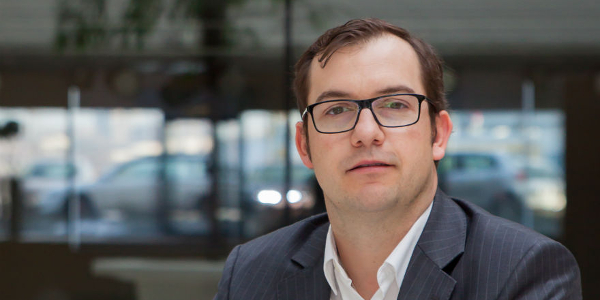MoboFree founder shares ingredients to a successful African marketplace

“The game is not so much about acquiring customers – that’s just the beginning. It is about how to keep your customers engaged over time, making sure they have a good opportunity and a good first experience,” explained Cristobal Alonso, co-founder and CEO of MoboFree.
“I think it takes an entrepreneurial mind and soul to operate in Africa.”
This is according to Cristobal Alonso, CEO of online and mobile social marketplace MoboFree. The platform allows African consumers to do anything from buying and selling goods and services, to chatting and finding love. Its main markets are Nigeria (with 2.7 million unique users) and Uganda (with about 700,000), but is also seeing a growing user base in countries such as Ghana, Kenya, Zimbabwe and even India.
The business was co-founded by three Europeans, and currently has offices in Lagos and Vilnius in Lithuania, with another set to open soon in Kampala.
Alonso, a Spanish-born entrepreneur, joined MoboFree in 2013 after being introduced to the start-up while working at an accelerator in Lithuania. He saw the potential of mobile internet in the African market, and the possibilities for entrepreneurs to grab opportunities that no longer existed in Europe.
“It is a place where a lot of the large companies have not yet ventured because it takes a lot of time to make money and a lot of hard work. If you wait 10 years from now, Africa might look more like Eastern Europe, and then the large companies will be taking a hold of everything,” he told How we made it in Africa.
“So now is the time when entrepreneurs can actually take the market.”
Free peer-to-peer marketing via mobile phones
Through MoboFree, users can advertise jobs, goods and services for free. The service earns revenue through advertising, although its team plans to eventually offer premium features to advertisers.
Currently no payments are made through the platform for goods and services, as MoboFree is being utilised as a peer-to-peer marketing tool, connecting users. However, Alonso said he and his co-founders are looking into adopting an online payments solution. “But this will be a very country-specific strategy, as some countries evolve much quicker than others,” he explained.
The platform has been optimised for mobile phone usage, with specific focus on the more prevalent feature phones on the continent. “From the beginning we knew the majority of our customers or potential users were actually still using feature phones or Nokias and Blackberries. So we optimised our product for that experience.”
The company has also invested heavily in ensuring its platform is as safe for users as possible. For example, it has mechanisms to verify that pictures of people and products are genuine, and have not been taken from the internet.
Currently, Alonso estimates that about 30% of products do not get advertised on the site because they do not meet some criteria.
Strategy for success: user engagement
“The game is not so much about acquiring customers – that’s just the beginning. It is about how to keep your customers engaged over time, making sure they have a good opportunity and a good first experience,” explained Alonso.
One of the platform’s successful strategies has been in developing user engagement through a social network. When the concept for MoboFree was first developed, Alonso said there was huge potential for an African social network, as international players like Facebook were slow to catch-on in the market.
“We first tried to create this mass set of customers, and then we started putting the pillars for more classifieds and listings.”
By combining a mobile social network, the founders have ensured a strong customer base for its classifieds platform.
Second-hand goods rule
The platform’s top performing categories are real estate (such as flats to rent), cars, electronics, and jobs and services. According to Alonso, the vast majority of goods advertised are second hand. In fact, in August the value of all listed second-hand items on the site was almost US$2bn in Nigeria alone.
“No matter how wealthy Africans get in the coming decade, I think second-hand goods on the continent will still be much bigger in sales volume than first-hand goods,” he continued.
“And a lot of it will be done through online and mobile marketplaces like ours.”

